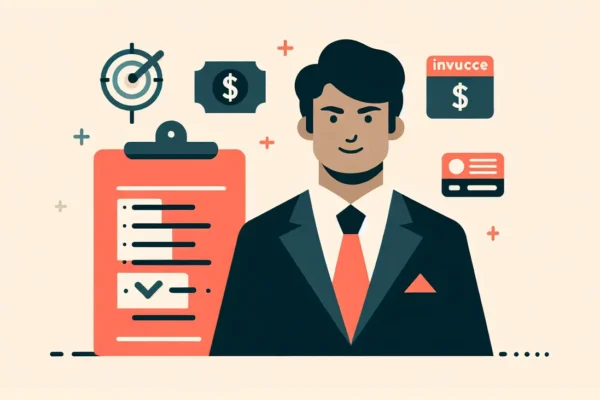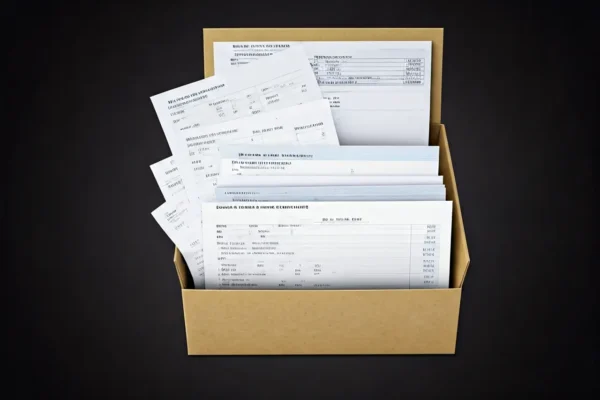In today’s fast-paced world, managing debt recovery efficiently is crucial for businesses. Let’s explore how fintech is transforming this process, making it more effective and streamlined.
What is Fintech in Debt Recovery?
Fintech, short for financial technology, refers to the innovative use of technology in financial services, including debt collection. It encompasses tools that enhance the efficiency and effectiveness of collecting outstanding debts.
When we talk about fintech’s role in debt recovery, we’re referring to the integration of advanced technologies to streamline and simplify the process. Traditionally, debt recovery involved a lot of manual work and untimely communication. However, fintech has transformed this by automating tasks and introducing digital platforms for quicker interaction. By leveraging fintech, companies can now track payments, send reminders, and manage receivables seamlessly, significantly reducing the workload and chances of human error.
But it doesn’t stop there. Fintech solutions provide valuable data insights, allowing businesses to predict and address potential default risks preemptively. This proactive approach not only aids in reducing bad debts but also improves overall financial health. Additionally, fintech tools offer flexible and secure payment options catering to the diverse needs of customers, enhancing their experience and satisfaction. To grasp the depth of how fintech aids business recovery, consider visiting Fintech and Business Recovery for a deep dive.
How Does Automation Benefit Debt Recovery?
Automation reduces manual tasks, allowing quicker processing of payments and reminders. This leads to faster recovery of overdue accounts and minimizes human error, making the process more reliable.
With automation, repetitive tasks are a thing of the past. Imagine not having to send individual payment reminders or chase late payments manually. Fintech allows businesses to automate these processes, radically improving efficiency. Automated emails and notifications remind customers of upcoming or overdue payments, keeping the workflow smooth and punctual.
Moreover, automation ensures consistent communication, which is fundamental in maintaining strong customer relationships. By using predictive algorithms, fintech tools can facilitate personalized communication strategies, encouraging timely payments without hounding clients. This strategy not just improves recovery rates but also maintains a healthy client-business relationship, vital for long-term success. For more tailored strategies on efficient recovery, refer to our insights on Credit Risk and Debt Recovery Considerations.
Predictive Analytics in Debt Collection
Using data analytics, fintech solutions can predict payment behaviors, allowing businesses to tailor their collection strategies. This foresight helps in efficiently managing debtor communications and resource allocation.
The power of predictive analytics transforms how businesses view debt collection. By analyzing data patterns, fintech tools help in anticipating which clients might fall behind on payments. This early identification allows businesses to adjust their strategies appropriately, potentially offering alternative payment plans or incentives to encourage on-time payments. This data-driven approach not only curtails potential issues but also optimizes resource allocation, saving time and money.
In practice, predictive analytics can assess a wide range of indicators, including payment history, current financial status, and even behavioral analytics gathered from social media activity. By leveraging these insights, businesses can prioritize collections and allocate resources more effectively. It’s about being better prepared and proactive, rather than reactive, in tackling challenges. For a detailed view on leveraging analytics in fintech, visit Fintech Lending and Debt Recovery.
Enhancing Customer Experience
Fintech tools facilitate seamless communication with customers through multiple digital channels, providing a user-friendly payment experience and improving customer relations during the debt recovery process.
In today’s digital era, customers expect fast, efficient, and personalized service. Fintech solutions play a crucial role by offering multiple touchpoints for customer interactions, such as chatbots, mobile apps, and online portals, all of which provide round-the-clock assistance. This flexibility empowers customers to resolve their queries and make payments on their terms, enhancing overall satisfaction.
Additionally, a seamless customer experience in debt recovery can significantly impact a company’s reputation. Through fintech, maintaining transparency and offering respectful, solution-based interactions becomes achievable. This approach not only aids in recovery efforts but also fosters customer loyalty and trust, which are invaluable in competitive markets. For strategies to enhance customer experience while maintaining efficiency in debt recovery, consider exploring how modern finance can save your company.
The Role of AI in Debt Collection
Artificial Intelligence (AI) aids in refining debt recovery strategies through smart data analysis and automation. It assists in identifying debtor profiles and suggests optimal collection tactics.
AI technology in debt collection is like having a smart assistant, always working behind the scenes to optimize processes. By analyzing vast amounts of data, AI can categorize debtors based on their payment tendencies and financial behaviors. Such granular insights allow businesses to tailor their strategies, ensuring that they approach each debtor with the most effective tactic.
Beyond strategic planning, AI enhances the recovery process through automation, from sending timely reminders to processing payments quickly. This tech enables businesses to operate efficiently and ensures a high level of precision in debt management. The integration of AI in fintech is, therefore, not just a matter of convenience; it’s an essential step towards a more streamlined, successful recovery process. For more on AI’s transformative role in debt recovery, you might find our detailed discussion on Fintech solutions insightful.
Fintech’s Role in Streamlining Debt Collection
Fintech is reshaping debt recovery, offering solutions that enhance efficiency, accuracy, and customer relationships. By embracing these innovative tools, businesses can navigate debt collection challenges with greater ease and success.







